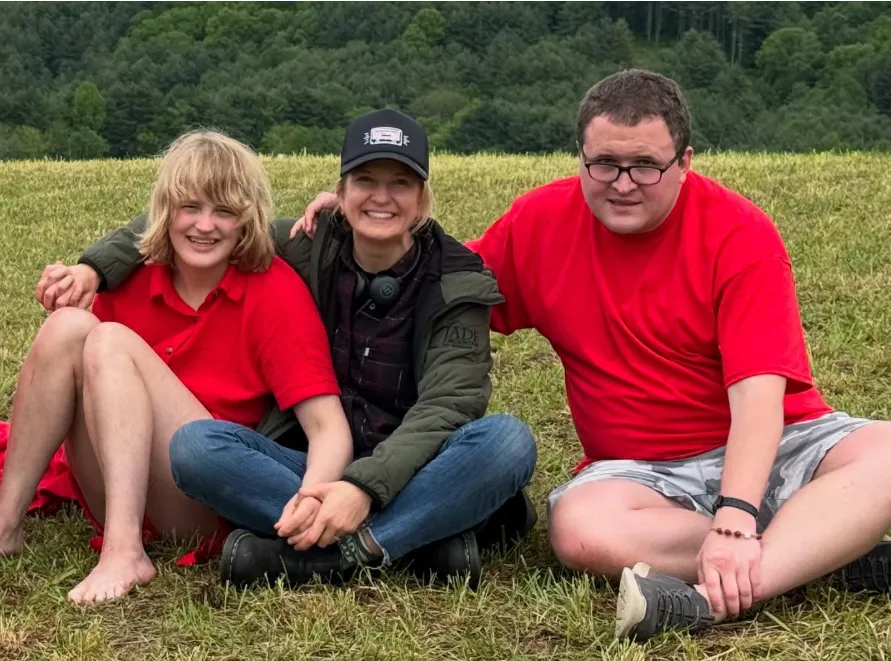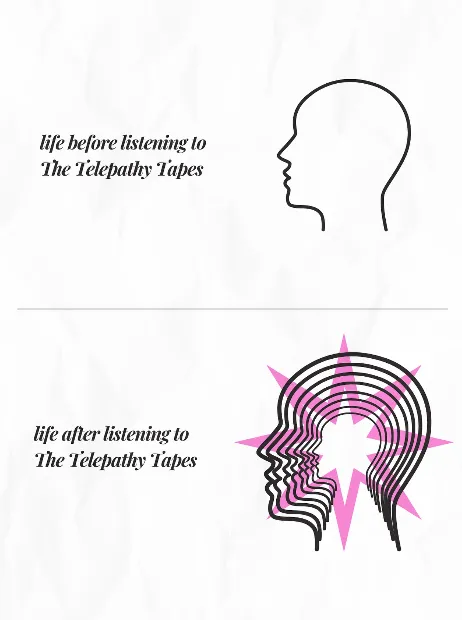Wham, Bam, Autism scams: The Telepathy Tapes Part 3
Bronwyn Rideout - 15th September 2025
In the final part of this series (until season 2 that is), I look at the final three episodes of the podcast. To be frank, these episodes feel superfluous, although episode 8 does attempt to offer something new by covering the controversy surrounding facilitated communication.
Episode 8 - In this episode, Ky tries to convince us that her science nerd cred is still in place by discussing the controversy around spelling as a method of communication. But Dickens poisons the well by titling the episode “Gatekeepers of Truth”, so we know we are off to a roaring start. One does not have to wait long before Ky states the position that it is skeptics and detractors who are harming children:
“And for those railing against spelling, there’s money, systems, and the ramifications of admitting a mistake that has costed thousands of kids their education, their hope, and personhood.”
No one has a problem with spelling per se. As Janyce pointed out during our interview with her, on our latest podcast episode, typing with a keyboard or pointing to letters on a letter board are legitimate forms of Augmentative and Alternative Communication. The problem lies in the level of contact/intimacy between the speller and the facilitator. And while episode 7 may have you despairing that special education services in America are a lost cause, Dickens inadvertently shares some silver linings. When Katie, the evangelical mother featured in episode 3, gushed to her son’s teacher about what she had observed, the teacher had to break it to her that her methods had been discredited. Katie then tried to persist with getting her son placed in general education classes, but this time faced stronger pushback, and attempts by staff who knew the family to explain why they didn’t support FC. In the end, they relented a little and let Houston attend a history class until the end of his final school year.
The message of this episode is clear: spelling (Ky avoids using the term FC as much as she can, thereby obfuscating what the real issues are here) is controversial, and its advocates feel that they have to do it on the downlow, lest they lose their jobs. If you never saw the videos, you might be convinced that Ky was making a fair argument differentiating the so-called no-touch RPM and S2C methods from the touch-based FC. But, once you view the videos that Dickens and Hennessey Powell have made available, it becomes clear that Dickens’ stance quickly falls apart.
Ky never interviewed Janyce Boynton, but does obliquely refer to the 1992 documentary that reported on her case. Accusations that the allegations of sexual assault were due to untrained facilitators get trotted out here. What is excluded was how Howard Shane was able to prove true authorship in FC cases. Dickens argues that there are hundreds of papers supporting the idea that authorship is genuinely with the non-speaker, but as Stuart Vyse writes in the Skeptical Inquirer that is simply not true - he found that none of the papers support the newer methods at all.
The remainder of the episode profiles two more non-speakers who are telepathic. Again, we get another example of how the concept of the Hill is modified by parents to reflect their world view. In this instance, an orthodox Jewish father reports that his son goes to something like the Hill, but a version that is restricted to Jewish people only. The conclusion of this episode is a sly double-down on why testing conditions that would prove telepathy exists just wouldn’t work, i.e. the presence of a trusted and trained spelling partner.
In the penultimate episode, Dickens dives further into the spiritual messages the participants have received “telepathically”. The intersection between religion and FC users is covered in multiple news episodes throughout this series, and new ground is not broken here. We do learn that JP, who featured in Episode 4, died in an accident at home. Much of this episode deals with the aftermath of this event, and the resulting telepathic experiences of his friends. What is scary is that his ‘girlfriend’, Lily, allegedly communicated that she wanted to die, but has stayed in this life to share their love story. To me, Lily is one of the most tragic stories in this series, because the adults around her are exploiting her without giving it a second thought. Not only is she being put into romantic scenarios that nobody can be certain she wants, but attributing thoughts of suicide to her is another level of horror entirely.

Left to right: Lily, Ky Dickens, and Houston
Episode 10 closes out the season with several non-speaking Autistics sharing their perspectives. The comments are read and presented by others, which is something of a take when Dickens wants their take-home message to be that denying them RPM/S2C is a violation of their human right to communicate. But in the midst of all these anecdotes about independence and competence is this:
“So many non-speakers have stopped attending school when they start RP and spelling. Because speech teachers are scared they will lose their license. Spelling has allowed me to show that I’m a smart person trapped in a body that I struggle to control. Sometimes getting my friends to hang out on a Hill is nice because it is easier.”
For most of the children featured in this podcast, this removal from school would be a tragic outcome. They are likely to be isolated and pulled into a world where their communication is limited to one or two trusted facilitators. They will also often be prevented from accessing appropriate training with AAC devices. On the other hand, as seen with Amelia in episode 7, and with some of the teachers in episode 5, many schools are very comfortable with FC/S2C/RPM, and may even introduce it to families. Sadly, it’s a lose/lose situation that Dickens fails to see.
Suffice to say, I am not looking forward to season 2; but rest assured, I will be listening in. I would like Dickens to engage more with the research, rather than being self-indulgent with clips of people claiming to have done so themselves. But my prediction is that Ky will go further down the supernatural rabbit hole, rather than try to engage in the more materialist questions that surround FC/S2C/RPM. In any case, it will be interesting to see if Dickens achieves the same level of success if she continues to push her thesis deeper into the realms of incredulity.

Yes, I too think my brain shrank after listening to this podcast